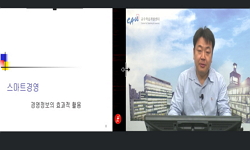Even before the introduction of the Uyghur Forced Labor Prevention Act (UFLPA), the U.S. has imposed sanctions on products related to human rights violations in accordance with Section 307 of the U.S. Tariff Act of 1930 and Global Magnitsky Human Righ...
http://chineseinput.net/에서 pinyin(병음)방식으로 중국어를 변환할 수 있습니다.
변환된 중국어를 복사하여 사용하시면 됩니다.
- 中文 을 입력하시려면 zhongwen을 입력하시고 space를누르시면됩니다.
- 北京 을 입력하시려면 beijing을 입력하시고 space를 누르시면 됩니다.
https://www.riss.kr/link?id=A108871248
- 저자
- 발행기관
- 학술지명
- 권호사항
-
발행연도
2023
-
작성언어
Korean
- 주제어
-
KDC
363
-
자료형태
학술저널
-
수록면
52-70(19쪽)
- 제공처
-
0
상세조회 -
0
다운로드
부가정보
다국어 초록 (Multilingual Abstract)
During the first year of the implementation of the UFLPA, more than $500 million worth of shipments had been denied and more shipments from Malaysia and Vietnam than from China had been held for customs clearance. In this regard, companies need to set up a supply chain due diligence system that is capable of examining raw materials and intermediate goods from countries other than China, along with a supply chain tracking system and a system that enables companies to receive relevant data from suppliers in advance, in order to minimize potential risks.
As concerns have been raised regarding some companies’ attempts to circumvent UFLPA investigations, the U.S. may strengthen its investigation procedures and further delay the customs procedures in the future, with an additional introduction of legal grounds to facilitate investigations related to the circumvention of UFLPA.
Even before the introduction of the Uyghur Forced Labor Prevention Act (UFLPA), the U.S. has imposed sanctions on products related to human rights violations in accordance with Section 307 of the U.S. Tariff Act of 1930 and Global Magnitsky Human Rights Accountability Act. However, with the implementation of the UFLPA, strengthened measures have been introduced for products related to human rights violations, as imports to the U.S. of goods made in Xinjiang Uyghur Autonomous Region and goods assembled or manufactured in countries other than China using raw materials from the Xinjiang Region have been prohibited.
During the first year of the implementation of the UFLPA, more than $500 million worth of shipments had been denied and more shipments from Malaysia and Vietnam than from China had been held for customs clearance. In this regard, companies need to set up a supply chain due diligence system that is capable of examining raw materials and intermediate goods from countries other than China, along with a supply chain tracking system and a system that enables companies to receive relevant data from suppliers in advance, in order to minimize potential risks.
As concerns have been raised regarding some companies’ attempts to circumvent UFLPA investigations, the U.S. may strengthen its investigation procedures and further delay the customs procedures in the future, with an additional introduction of legal grounds to facilitate investigations related to the circumvention of UFLPA.
동일학술지(권/호) 다른 논문
-
종합안전보장 정책으로써 일본의 경제안전보장추진법: 국제법적 정합성 및 WTO의 역할 문제를 중심으로
- 산업통상자원부
- 오세영(Se Young OH)
- 2023
-
Third Party Participation in WTO Dispute Settlement Proceedings
- 산업통상자원부
- Won-youb CHOI(최원엽)
- 2023
-
- 산업통상자원부
- 한창완(Changwan HAN)
- 2023
-
- 산업통상자원부
- Dae Keun SHIN(신대근)
- 2023




 DBpia
DBpia






